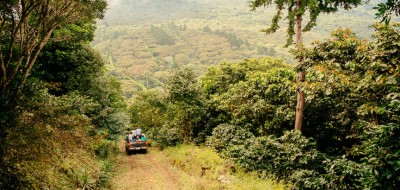El Salvador Farmers Beat Monsanto’s Monopoly: Refusing GMO and Outperforming with Record Crop Yields

Farmers from El Salvador make many US biotech farming practices look like the work of a bunch of crazed lunatics. At least in El Salvador they realize the importance of non-GM food and heritage seed saving. After outperforming Monsanto’s biotech seed with record crop yields, they have also now managed a giant defeat of Monsanto by preventing the company from supplying El Salvador with its poison seeds.
Monsanto’s biotech crops have been linked with kidney disease, liver failure, reproductive problems, and more. Most recently, the WHO called glyphosate, the main chemical ingredient in Monsanto’s herbicide Round Up, ‘probably carcinogenic.’
The El Salvador farmer resistance is great news considering the monopoly that Monsanto and other biotech companies have managed to hold over much of the rest of the world. Monsanto will deny having sway over the government, including federal judges in the US – but they actually do. Though they don’t have control everywhere. El Salvador farmers are working with the Minister of Agriculture there to lessen local farmers’ dependency on biotech seeds.
Juan Luna Vides, the director of diversified production for the Mangrove Association, a nongovernmental organization that was created to support a grassroots social movement for environmental conservation in El Salvador, says:
“Remember that Monsanto is together with DuPont, Pioneer, all the large businesses that control the world’s seed market. Unfortunately, many of the governments in Latin America, or perhaps the world, have beneficiary relationships with these companies.”
The Ministry of Agriculture just released a new round of contracts to provide seed to subsistence farmers across the country.
Monsanto attempts to do business in other markets with other company names, or brands, but the transnational hold is the same. And make no mistake, it is run by Monsanto and the other Big Six.
For example, companies like Pioneer generate commercials for various media outlets in El Salvador marketing their agrochemical products, and exerting great influence over the local farmers of the country.
Many farmers see the importance of keeping their seed supply local, though. small-scale seed producer Santos Cayetan told Truthout:
“We are losing the traditions of local seed, so we are trying to maintain it here. Native seeds don’t have what these other seeds have that come with the chemicals, based in chemicals.”
Cayetan, who is a recipient of corn seed from the government program that uses local, GMO-free seeds and also works to grow native corn, said that the difference between using local seed versus Monsanto’s is quite amazing.
“[Native seeds are] always the same, they always produce, and they’re always there,” he said. “[Native seeds] are drought resistant.”
This and other farmers also comment on the fact that local seed has been adapted to the conditions specific to the region, and Monsanto’s seed has not. The local seed grows well even in dry soil. Farmers can also save and re-use seed without having to worry about patent infringement, as well as having to repurchase seed every season since much of the GM seed Monsanto, Pioneer, and others sell is meant to self-destruct after just one season, otherwise known as suicide seed.
As in many areas of the world, one of Monsanto’s sinister goals is to force farmers to purchase the company’s seeds every year, at highly inflated prices. These seeds also rely on toxic industrial fertilizers and their best-selling herbicide, Round Up.
“[Using only local seed] would be much better [for Salvadoran farmers]; they wouldn’t have to buy seeds every year,” Vides added. “It has to do with generating the conditions to promote food security … you can produce what you consume … produce and consume the same product.”
Cayetan explains that most farmers in El Salvador cannot afford Monsanto seeds – but that is by design.
“If all the producers produced [imported] seed, [local producers] would lose their businesses … this is what [Monsanto] wants.”
Additional Sources:
Photo credit: Farmers drive through the “coffee lands” of El Salvador, November 6, 2013. (Photo: Stuart)
Follow us: @naturalsociety on Twitter | NaturalSociety on Facebook

